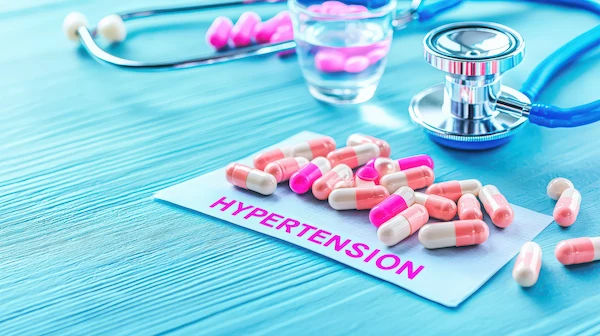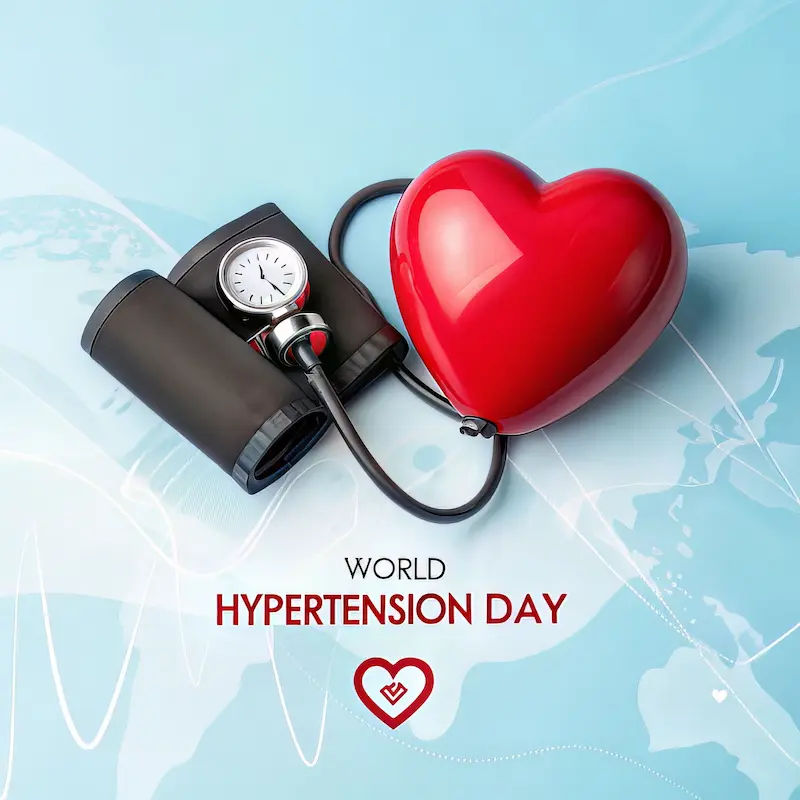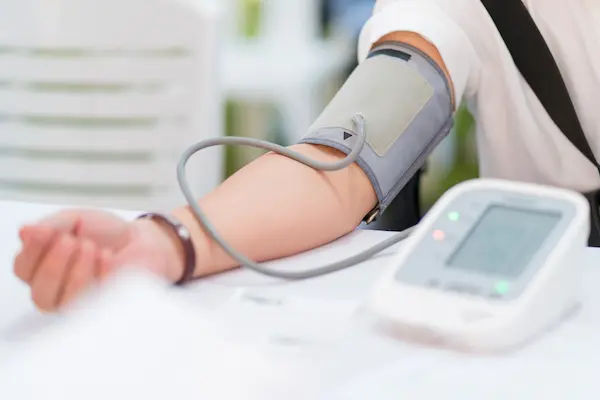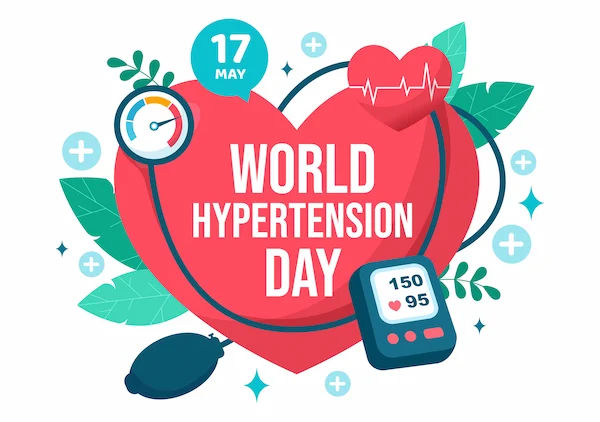Guide to Blood Pressure And Brain
Learn how blood pressure affects your brain health, from cognitive function to the risk of stroke. This comprehensive guide covers the link between hypertension, hypotension, and brain health.

Written by Dr. Mohammed Kamran
Reviewed by Dr. Rohinipriyanka Pondugula MBBS
Last updated on 13th Jan, 2026

Introduction
Your brain is the command center of your entire body, a three-pound universe of thoughts, memories, and emotions. But this incredible organ is also incredibly vulnerable, relying on a delicate, constant supply of fuel and oxygen delivered by your blood. The force with which that blood flows—your blood pressure—plays a starring role in determining your brain's health throughout your life. When this pressure is consistently too high or too low, it can silently chip away at your cognitive functions, increasing the risk of serious conditions like stroke and dementia. This guide will demystify the critical connection between blood pressure and your brain. We'll explore how hypertension causes damage, the surprising effects of low pressure, and, most importantly, provide you with actionable strategies to protect your mind and maintain sharp cognitive function for years to come.
The Vital Connection: How Blood Pressure Fuels Your Brain
To understand why blood pressure is so crucial, you must first appreciate your brain's immense metabolic demands. Although it represents only about 2% of your body weight, your brain consumes roughly 20% of your body's oxygen and blood supply. Every thought, heartbeat, and breath is powered by this relentless river of blood.
The Brain's Demanding Energy Needs
Unlike muscles, which can store energy, your brain has minimal reserves. It requires a continuous, rich supply of glucose and oxygen to function. This is where blood pressure comes in. It acts as the delivery force, pushing nutrient-rich blood through a vast network of arteries into the intricate capillary beds of the brain. If this pressure drops too low, even for a short period, the brain is starved of energy, leading to dizziness, confusion, or fainting.
The Delicate Network of Brain Blood Vessels
The brain's vascular system is a masterpiece of biological engineering but also remarkably fragile. These vessels are lined with a sensitive layer of cells (the endothelium) that help regulate blood flow. Consistently high blood pressure is like subjecting these delicate pipes to a constant, powerful firehose blast. Over time, this force causes wear and tear, making the vessels stiff, narrow, and prone to damage, which sets the stage for serious neurological problems.
Consult Top Specialists
When Pressure is Too High: How Hypertension Harms the Brain
Hypertension is often called the "silent killer" because it typically has no symptoms until significant damage has occurred. When it comes to the brain, this damage can manifest in several devastating ways.
Silent Strokes and White Matter Disease
A major stroke is a sudden, catastrophic event. However, high blood pressure more commonly causes "silent strokes" or micro-infarcts. These are tiny areas of brain tissue that die due to blocked blood flow. Individually, they may go unnoticed, but cumulatively, they contribute to a condition called white matter disease. This appears as white spots on an MRI and is strongly linked to symptoms of high blood pressure in the brain like slow walking, balance issues, and gradual cognitive decline, particularly in executive function and processing speed.
The Link Between High Blood Pressure and Dementia
Perhaps the most feared brain-related consequence of hypertension is dementia. Research has firmly established that mid-life hypertension is a major risk factor for both Alzheimer's disease and vascular dementia. The mechanism is twofold: first, by damaging blood vessels, hypertension disrupts the clearances of toxic proteins like amyloid-beta, a hallmark of Alzheimer's. Second, it directly causes vascular dementia by impairing blood flow to regions critical for memory and learning. Controlling your blood pressure is one of the most effective evidence-based strategies for reducing your risk of dementia.
Understanding Transient Ischemic Attacks (TIAs)
A Transient Ischemic Attack (TIA), or "mini-stroke," is a temporary blockage of blood flow to the brain. The symptoms—such as sudden numbness, slurred speech, or vision loss—are identical to a stroke but typically last only a few minutes and cause no permanent damage. However, a TIA is a major warning sign that a full-blown stroke is imminent. High blood pressure is the primary cause of the artery disease that leads to TIAs. If you experience any signs of a mini-stroke, it is a medical emergency, and you should seek immediate attention. If symptoms occur, consulting a doctor online with Apollo24|7 can provide immediate guidance, but if they are severe, go to the nearest emergency room.
Recognizing the Warning Signs: Symptoms of Brain-Related Hypertension
While hypertension itself is often silent, the damage it causes to the brain can produce symptoms. These require immediate medical attention:
Severe Headaches: Often described as the "worst headache of your life," which could indicate a hemorrhagic stroke.
Confusion or Cognitive Difficulties: Sudden trouble speaking, understanding speech, or mental fogginess.
Vision Changes: Blurred or double vision.
Numbness or Weakness: Sudden numbness, weakness, or paralysis in the face, arm, or leg, often on one side of the body.
Dizziness and Loss of Balance.
It's crucial to monitor your blood pressure regularly, as these symptoms often appear only after significant damage has occurred.
The Often-Ignored Risk: Can Low Blood Pressure Affect Your Brain?
While much focus is on high pressure, chronically low blood pressure (hypotension) can also affect brain health. The primary issue is insufficient blood flow, a condition known as cerebral hypoperfusion.
Orthostatic Hypotension and Brain Fog
A common form of low pressure is orthostatic hypotension—a sudden drop in blood pressure upon standing. This can cause dizziness, lightheadedness, and even fainting as blood temporarily rushes away from the brain. For some, especially older adults, chronic low pressure can lead to persistent symptoms like brain fog, fatigue, and lack of concentration. There is also ongoing research into whether long-term cerebral hypoperfusion contributes to cognitive decline and an increased risk of dementia, as the brain is consistently under-fueled.
Protecting Your Mind: Actionable Strategies for Optimal Brain Blood Flow
The excellent news is that you have significant power to protect your brain by managing your blood pressure. Lifestyle changes are the cornerstone of prevention.
The DASH Diet and Mediterranean Approach
Dietary patterns like the DASH (Dietary Approaches to Stop Hypertension) and Mediterranean diets are proven to lower blood pressure and support brain health. They emphasize:
Fruits, vegetables, and whole grains: Rich in potassium, which helps balance sodium.
Lean proteins: Like fish and poultry.
Healthy fats: From nuts, olive oil, and avocados.
Limited sodium, sugar, and saturated fats. This combination reduces arterial stiffness and inflammation, directly benefiting your cerebrovascular health.
Exercise: The Best Medicine for Your Brain's Blood Vessels
Regular aerobic exercise (like brisk walking, swimming, or cycling) is a potent tool. It makes your heart stronger and more efficient, so it doesn't have to work as hard to pump blood. This directly lowers your resting blood pressure. Exercise also stimulates the release of compounds that improve the health and flexibility of your blood vessels, ensuring robust blood flow to the brain.
Stress Management and Quality Sleep
Chronic stress keeps your body in a "fight-or-flight" mode, elevating blood pressure. Techniques like meditation, deep breathing, and yoga can activate the relaxation response. Furthermore, prioritize 7-9 hours of quality sleep per night. During deep sleep, your blood pressure naturally dips, giving your cardiovascular system a much-needed rest. Poor sleep is linked to hypertension and cognitive impairment. If your condition does not improve after trying these methods, book a physical visit to a doctor with Apollo24|7 to create a personalized management plan
Key Takeaways for Lifelong Brain Health
Your brain is exquisitely sensitive to changes in blood pressure, relying on a steady, well-regulated flow of blood.
Uncontrolled high blood pressure is a primary risk factor for stroke, silent strokes, and dementia by damaging delicate blood vessels.
Even low blood pressure can cause symptoms like dizziness and brain fog due to reduced blood flow.
There are often no early symptoms of hypertension-related brain damage, making regular monitoring essential.
A heart-healthy lifestyle—centered on a balanced diet, regular exercise, stress management, and good sleep—is a brain-healthy lifestyle.
Controlling your blood pressure is one of the most powerful actions you can take to preserve your cognitive function as you age.
If you have concerns about your blood pressure or cognitive health, consulting a doctor is the critical first step. Apollo24|7 offers convenient home collection for tests like lipid profiles and HbA1c, which are important for a comprehensive cardiovascular health assessment.
Consult Top Specialists
Conclusion
The relationship between blood pressure and brain health is undeniable and profound. By understanding this connection, you move from a passive position to an active role in safeguarding your most vital organ. The choices you make every day—what you eat, how you move, how you rest—directly influence the pressure within your arteries and, consequently, the long-term vitality of your mind. View managing your blood pressure not as a chore, but as the ultimate investment in your cognitive capital. It’s about preserving your memories, your sharpness, and your independence. Start today by getting your numbers checked, and take that first step toward a healthier brain for life
Consult Top Specialists

Dr. Rajib Ghose
General Physician/ Internal Medicine Specialist
25 Years • MBBS
East Midnapore
VIVEKANANDA SEBA SADAN, East Midnapore

Dr. Chethan T L
General Physician/ Internal Medicine Specialist
5 Years • MBBS, MD, DNB (General Medicine)
Bengaluru
Apollo Medical Center, Marathahalli, Bengaluru

Dr. Anand Misra
General Physician/ Internal Medicine Specialist
14 Years • MBBS, DNB
Mumbai
Apollo Hospitals CBD Belapur, Mumbai
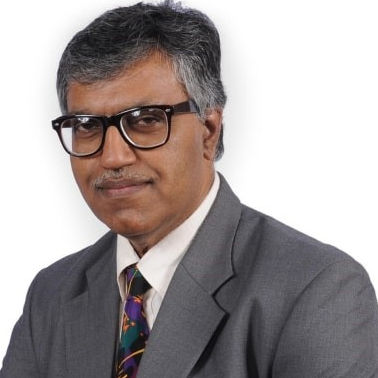
Dr P Jagadeesha Chandra
General Physician/ Internal Medicine Specialist
37 Years • MBBS, MD
Bengaluru
Apollo Hospitals Jayanagar, Bengaluru

Dr. Aakash Garg
Gastroenterology/gi Medicine Specialist
12 Years • MBBS, DNB (Medicine), DrNB (Gastroentrology).
Bilaspur
Apollo Hospitals Seepat Road, Bilaspur
(150+ Patients)
